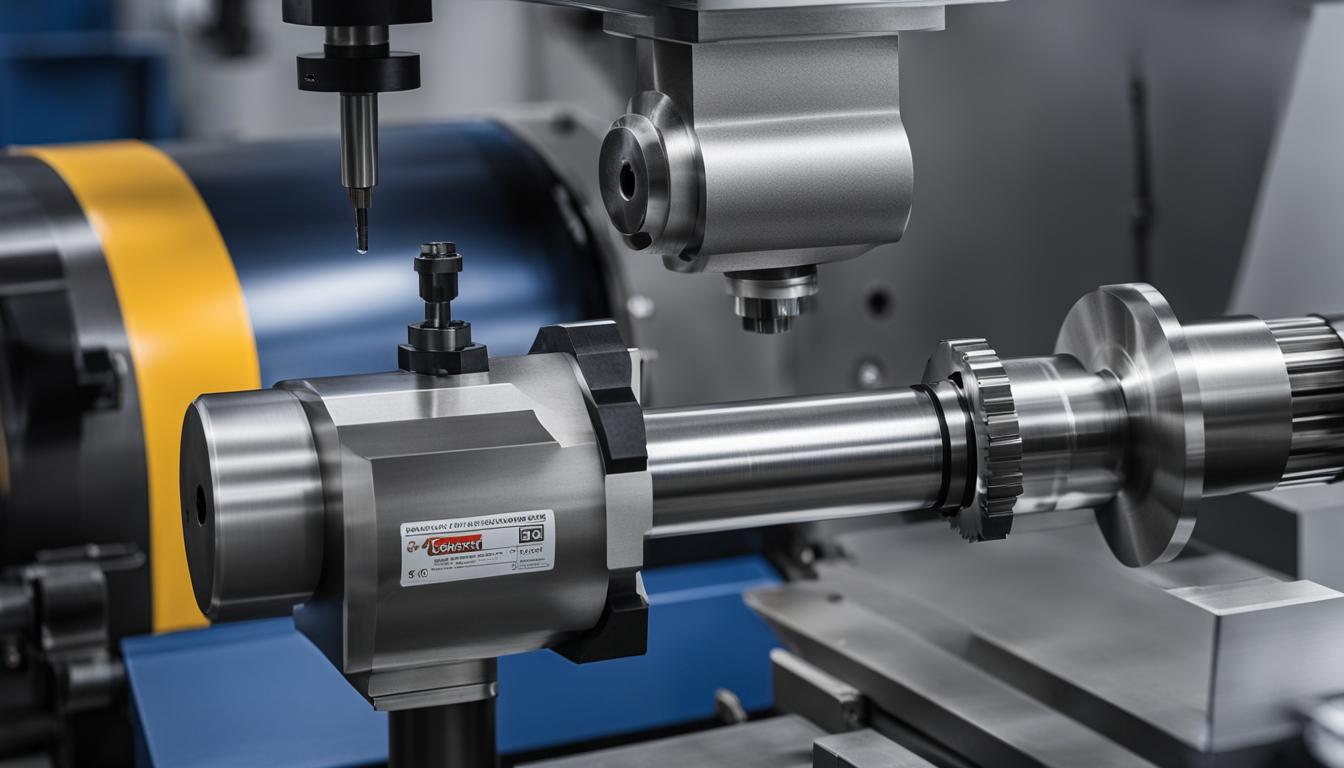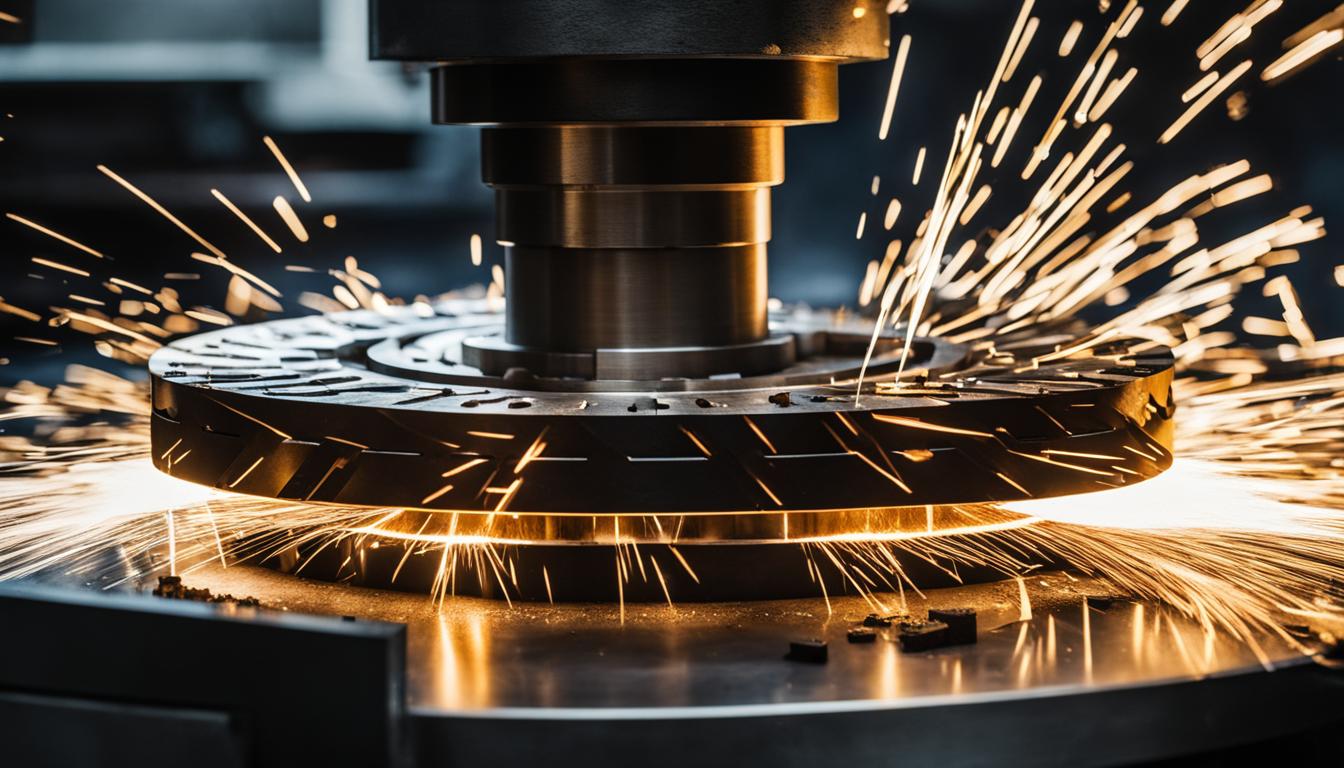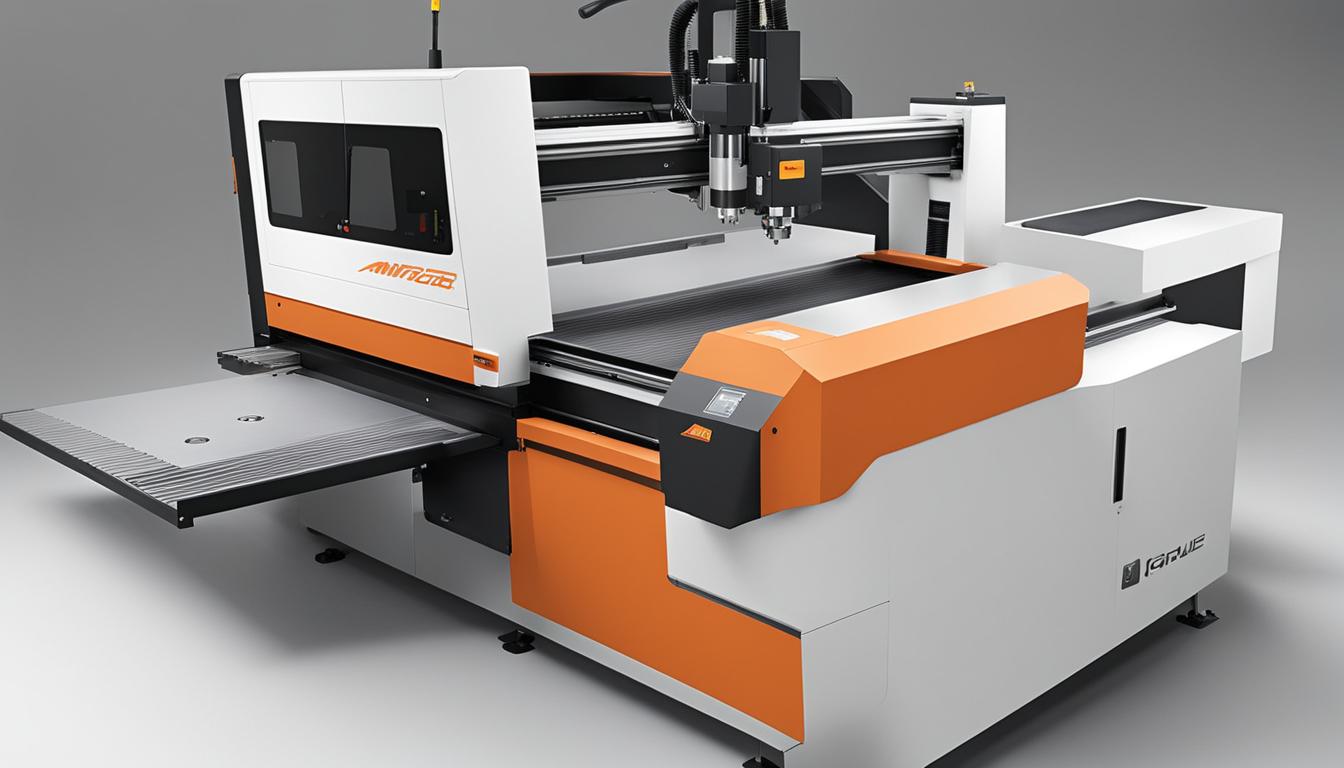The Ultimate Guide for CNC Machine Buyers in 2024 focuses on key factors to consider when purchasing a CNC machine. Prospective buyers should evaluate machine type, size, and specifications based on their specific manufacturing needs. Accuracy, speed, and precision are crucial performance metrics to assess. Budget considerations include not only the initial purchase price but also ongoing maintenance costs and potential ROI. Software compatibility and ease of use are important for seamless integration into existing workflows.
Energy efficiency and environmental impact are becoming increasingly significant factors. Buyers should also consider the manufacturer’s reputation, after-sales support, and warranty options. Automation capabilities and future scalability are essential for long-term value. Thoroughly researching and comparing different models, visiting trade shows, and seeking expert opinions can help make an informed decision.
Considering used or refurbished machines can be a cost-effective option for some buyers. Ultimately, the ideal CNC machine balances performance, cost-effectiveness, and long-term reliability to meet specific production requirements.
- Understand your operational scope and precision requirements before buying a CNC lathe machine.
- Consider the key features such as bed length, swing capacity, spindle speed, and motor power.
- Ensure quality and reliability by choosing suppliers with a proven track record and ISO certifications.
- Partner with South Lathe Machine Tools for precision engineering and cost-efficient solutions.
- When buying a CNC router, consider the price, performance, and job requirements.
Understanding Your Needs for a CNC Lathe Machine
When buying a CNC lathe machine, it’s important to assess your operational scope, precision requirements, material compatibility, and the need for versatility.
- Operational Scope: Consider whether you require a machine for small-scale and intricate tasks or larger-scale and heavy-duty operations.
- Precision Requirements: Evaluate the level of precision needed for your projects. Different applications may have varying tolerance levels.
- Material Compatibility: Determine the types of materials you will be working with, such as metal, plastics, or composites. Ensure that the machine is compatible with the specific materials you’ll be machining.
- Versatility: Assess if you need a machine that can handle a diverse range of materials. Versatility allows for operational adaptability and the ability to take on a variety of projects.
By understanding your needs for a CNC lathe machine, you can make an informed decision when selecting the right machine that meets your specific requirements.
Key Features to Consider for Choosing a CNC Lathe Machine
Choosing the right CNC lathe machine requires careful consideration of key features that directly impact its performance and suitability for your specific machining needs. By evaluating these features, you can ensure that the machine aligns with your requirements and enhances your productivity. The following are the essential features to consider:
Bed Length and Swing Capacity
The bed length and swing capacity of a CNC lathe machine determine its ability to handle workpieces of different sizes. The bed length refers to the distance between the lathe’s headstock and tailstock, while the swing capacity refers to the maximum diameter of the workpiece that can be accommodated by the machine. Evaluate your project requirements to determine the ideal bed length and swing capacity for your machining needs.
Spindle Speed and Motor Power
The spindle speed and motor power are crucial specifications that impact the machine’s versatility and efficiency. The spindle speed determines how fast the lathe spins, affecting the cutting speed and surface finish. The motor power indicates the machine’s capability to drive the spindle and handle the machining operations. Consider the material versatility and the demands of your projects to select a CNC lathe machine with suitable spindle speed and motor power.
Tooling Compatibility and Accessory Compatibility
Tooling and accessory compatibility play a significant role in enhancing the capabilities of your CNC lathe machine. Evaluate the compatibility of tooling options, such as different types of cutting tools and tool holders, to ensure that the machine can accommodate your machining requirements. Additionally, consider the compatibility of accessories like chucks, collets, and tailstocks, which can provide additional functionality and adaptability to support various machining operations.

When choosing a CNC lathe machine, carefully assess the bed length, swing capacity, spindle speed, motor power, tooling compatibility, and accessory compatibility to ensure that the machine meets your machining needs. These features play a critical role in determining the machine’s versatility, precision, and adaptability for different tasks.
Quality and Reliability for a CNC Lathe Machine
When it comes to investing in a CNC lathe machine, quality and reliability are paramount. You need a machine that not only meets your machining requirements but also stands the test of time. This section will guide you on finding a CNC lathe machine supplier with a proven track record of delivering unmatched quality and cost-effectiveness, along with tailored solutions.
The Importance of a Proven Track Record
When selecting a CNC lathe machine supplier, it’s crucial to consider their proven track record. Look for suppliers who have successfully served a wide range of customers with varying machining needs. A supplier with a solid history of delivering high-quality machines and excellent customer service is more likely to provide a reliable solution for your business.
ISO Certifications for Quality Assurance
An ISO certification is another crucial factor to consider. ISO certifications demonstrate a supplier’s commitment to maintaining international quality standards. By choosing a supplier with ISO certifications, you can have peace of mind knowing that their manufacturing processes and products have been thoroughly assessed and meet rigorous quality requirements.
Unmatched Quality and Cost-Effectiveness
One supplier that exemplifies unmatched quality and cost-effectiveness is South Lathe Machine Tools. With decades of experience in the industry, South Lathe Machine Tools has built a solid reputation for delivering high-performance CNC lathe machines that meet the needs of various industries. Their machines are known for their precision, durability, and efficiency, providing exceptional value for money.
Tailored Solutions for Your Machining Requirements
Every business is unique, with specific machining requirements. When selecting a CNC lathe machine, it’s essential to choose a supplier that offers tailored solutions. South Lathe Machine Tools understands the importance of customization and works closely with their customers to design machines that align with their precise needs. Whether you need a machine for small-scale production or heavy-duty machining, South Lathe Machine Tools can provide a solution tailored to your requirements.
When investing in a CNC lathe machine, prioritize quality, reliability, and tailored solutions. Look for suppliers with a proven track record and ISO certifications like South Lathe Machine Tools, who offer unmatched quality and cost-effectiveness. With their tailored solutions, you can find the perfect CNC lathe machine that meets your machining needs.
Elevate Your Machining Standards with South
When it comes to precision engineering and cutting-edge technology, South Lathe Machine Tools is the name you can trust. Their CNC lathe machines are crafted with meticulous attention to detail, ensuring top-notch performance and accuracy for all your machining needs. Whether you’re in the automotive, aerospace, or manufacturing industry, South offers tailored solutions that cater to your specific requirements.
One of the standout features of South Lathe Machine Tools is their commitment to cost-efficiency without compromising on quality or durability. With their machines, you can achieve optimal results while keeping your operational costs in check. From small-scale projects to heavy-duty applications, South has the right CNC lathe machine for every task.
Customization is a key aspect of South’s offerings. They understand that every client has unique needs, and they provide tailored solutions to meet those needs. Whether it’s modifying the machine’s capabilities or incorporating specialized features, South can customize their CNC lathe machines to match your exact specifications.
Partnering with South Lathe Machine Tools means gaining access to cutting-edge technology. Their machines are equipped with the latest advancements in CNC machining, allowing you to stay ahead of the competition. With features like advanced control systems, high-speed spindles, and automated tool changers, South’s CNC lathe machines provide unmatched efficiency and productivity.

South Lathe Machine Tools Product Range:
| Product | Description |
|---|---|
| Model XYZ-100 | Compact and versatile CNC lathe machine suitable for small-scale projects |
| Model ABC-200 | Heavy-duty CNC lathe machine with a large bed length and swing capacity |
| Model PQR-300 | Highly precise CNC lathe machine designed for intricate machining tasks |
Experience precision, efficiency, and innovation with South Lathe Machine Tools. Take your machining standards to new heights by partnering with a trusted leader in the industry.
How to Buy a Suitable CNC Router
When purchasing a CNC router, several factors need to be considered to ensure you make the right choice. It’s not just about the price; you also need to evaluate the performance and whether the router can meet your specific job requirements. Additionally, understanding the different types of CNC routers available in the market is crucial for selecting the one that best suits your needs.
1. Job Requirements: Start by assessing your job requirements and the materials you work with. Different CNC router types are designed for specific processing tasks. For example, a wood CNC router is ideal for cutting and carving wooden materials, while a stone CNC router is better suited for stone cutting and engraving. If you work with foam materials, a foam CNC router would be the right choice. Consider the size, power, and brand of the CNC router spindle, as well as the type of CNC router table that suits your needs.
2. Performance: Evaluate the performance capabilities of the CNC router. Look for features like high cutting speed, accuracy, and repeatability to ensure efficient and precise machining. Consider the maximum feed rate and spindle speed offered by the router, as well as the accuracy level it can achieve. This information is typically provided by the manufacturer and can help you determine if the CNC router meets your performance expectations.
3. CNC Router Price: While price should not be the sole determining factor, it is an important consideration when buying a CNC router. Set a budget and look for routers that offer a balance between affordability and performance. Comparing prices from different suppliers and considering any additional costs, such as maintenance and tooling, can help you make an informed decision.
By considering these factors, you can find a suitable CNC router that fits your job requirements and offers the performance you need. It’s always advisable to consult with suppliers, do thorough research, and read customer reviews to ensure you make an informed decision.
Advantages of CNC Machining Centers
CNC Machining Centers offer a wide range of advantages that make them a powerful tool in the manufacturing industry. These advanced machines provide:
- High Precision and Accuracy: CNC Machining Centers are known for their exceptional precision, ensuring consistent and accurate results for every project. This level of accuracy allows for intricate and complex designs with tight tolerances.
- Efficient Production: With their continuous operation capabilities, CNC Machining Centers enable efficient and uninterrupted production. This efficiency leads to faster turnaround times and increased productivity.
- Versatility: CNC Machining Centers can handle a wide range of tasks, from milling and drilling to cutting and shaping. Their versatility allows for the production of complex shapes and designs, catering to diverse manufacturing needs.
- Reduced Labor Intensity: Automation plays a significant role in CNC Machining Centers, reducing the need for manual labor. This automation not only increases operational speed but also minimizes the risk of errors caused by human intervention.
- Material Diversity: CNC Machining Centers can work with various materials, including metals, plastics, wood, foam, and composites. This material diversity grants manufacturers the flexibility to handle different projects and applications.
These advantages make CNC Machining Centers an indispensable asset in modern manufacturing, enabling efficient production with high precision and versatility. Whether you’re creating intricate prototypes or large-scale production runs, CNC Machining Centers deliver the precision, efficiency, and adaptability needed for successful manufacturing operations.
How Do CNC Machining Centers Work?
CNC Machining Centers are at the core of modern precision machining. These advanced machines operate by harnessing the power of computer numerical control (CNC) technology to execute complex and precise manufacturing processes.
The CNC machining process begins with Computer-Aided Design (CAD) software, which allows engineers to create detailed digital models of the desired component. The next step is Computer-Aided Manufacturing (CAM) software, which generates the necessary G-code instructions based on the CAD design.
Once the G-code is generated, the CNC controller takes charge. It interprets the instructions and coordinates the movement of various components within the CNC machining center. These components include the machine table, spindle, tool changer, and coolant system.
Working in harmony, the CNC controller ensures the machine table accurately positions the workpiece, while the spindle spins at precisely controlled speeds. The tool changer swaps out different cutting tools as required, and the coolant system ensures optimal operating conditions. Together, these components enable CNC machining centers to carry out intricate cutting, drilling, and milling operations with exceptional precision and efficiency.
